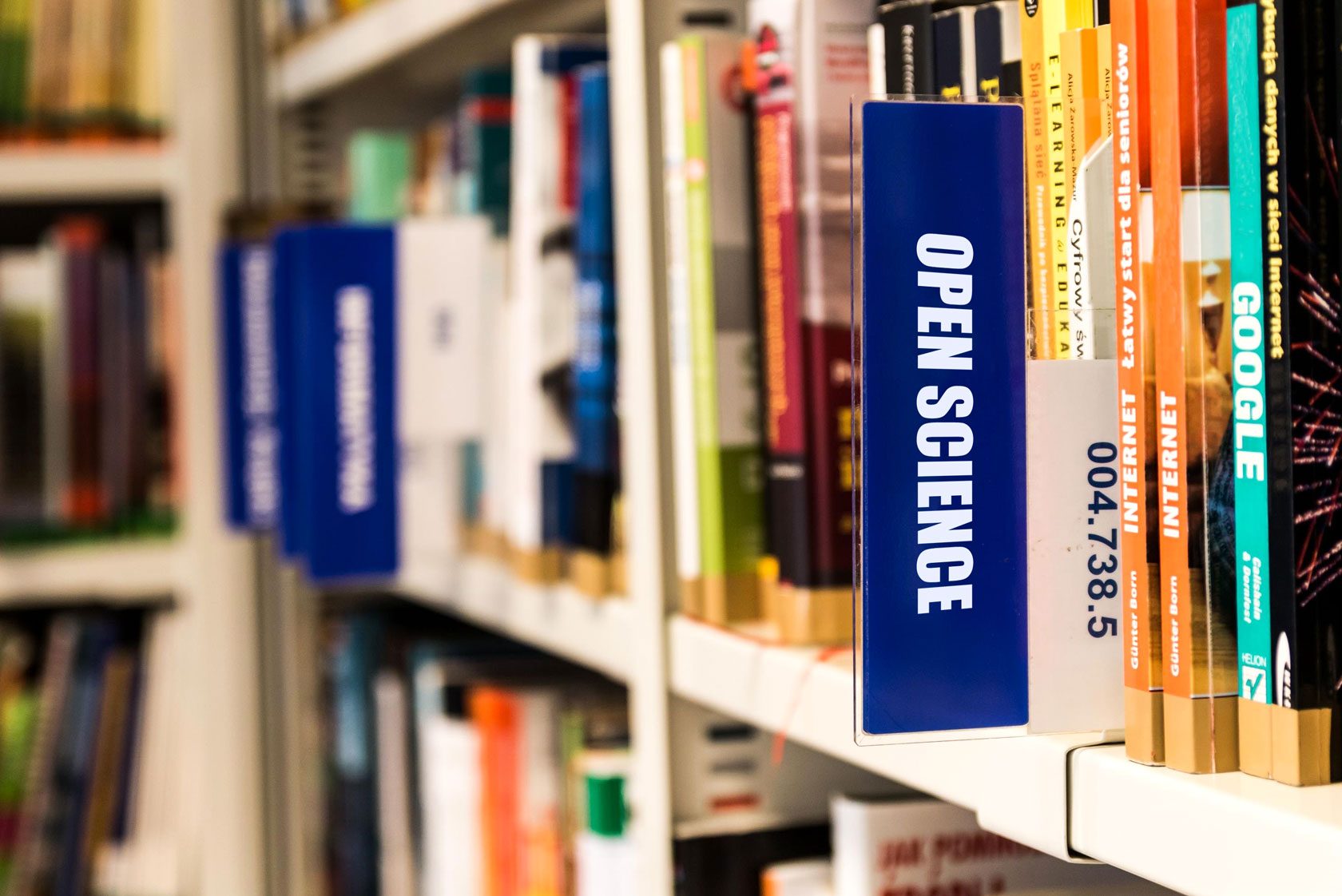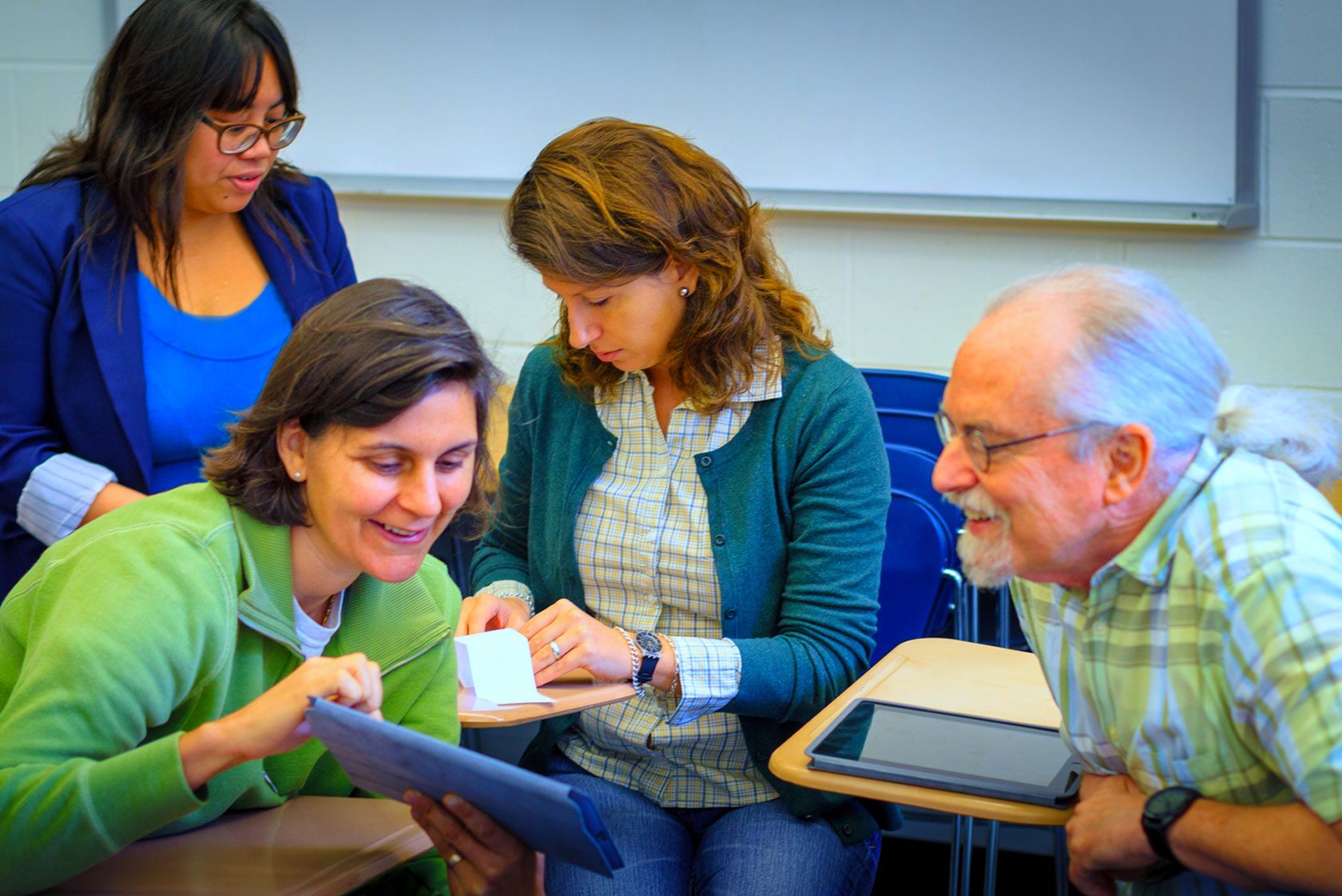
Interview: How Open Science is Changing the Landscape of Academic Libraries
How important is open science for academic libraries? How should they behave in the face of the open science movement? Dr Thomas Gerdes examined position papers on open science and its development perspectives in his master thesis in order to answer these questions.
 In his master thesis Dr Thomas Gerdes dealt with the topic “The Open Science Movement and its significance for the academic libraries – An Analysis of Position Papers and Development Perspectives” (link in German). The focus was on a target-actual comparison and the development perspectives for open science in academic libraries. We asked him about it.
In his master thesis Dr Thomas Gerdes dealt with the topic “The Open Science Movement and its significance for the academic libraries – An Analysis of Position Papers and Development Perspectives” (link in German). The focus was on a target-actual comparison and the development perspectives for open science in academic libraries. We asked him about it.
How did you proceed in your master thesis?
The term “open science” sums up heterogeneous aspirations for a more open science. What open science means for academic libraries is discussed in a variety of position papers and other publications. My work compares the target state formulated there with the current state of the library landscape. Furthermore, opportunities for the further development of open science in academic libraries are pointed out. I was very pleased that I was able to win several German and European open science experts as interview partners for my work.
Three research questions structure the work: Firstly: What statements on the topic of open science can be found in position papers that are relevant for academic libraries? Secondly: To what extent are the academic libraries in Germany and the EU already active in the field of open science? Thirdly: What are the development prospects for open science in the academic libraries in Germany?
What are the key points you identified?
The EU is a driving force in the implementation of open science, for example with the position paper Open Innovation, Open Science, Open to the World. But there are also many contributions on national level. The two central aspects of open science are currently open access and open data. In my work I have also examined statements on open metrics, open peer review, open educational resources and citizen science.
Some countries such as Finland, the Netherlands and Great Britain are leading the way in the practical implementation of open science. Individual libraries are also particularly active within Germany. OA officers, policies, repositories and journals are often already established. In addition, publication funds are already being set up in several libraries with a view to transforming the academic publishing system towards open access. In the area of open data, libraries participate in the development of projects along the life cycle of research data.
It should be emphasised that academic libraries are not always the focal point of interest in open science position papers. In the practical implementation, they are often dependent on partners, such as computer centres. Open science must therefore be seen as a joint project, which is the reason why a good network of libraries is fundamental.
How should libraries position themselves? What would you recommend?
Every library should at least contain basic knowledge and information on open science. The range of academic libraries extends from large university libraries covering a large number of subject areas to the library of a small institute researching exclusively on a specific topic. Because of this heterogeneity, libraries should generally develop and implement their open science activities according to their specific profile.
In order to remain competitive in an increasingly digitised and open scientific landscape, libraries should permanently monitor the market. In this way, they can develop demand-oriented offers along the research cycle. Furthermore, innovation management is recommended. Possible strategies would be to follow an existing trend or to initiate new initiatives. In cooperation with other libraries and stakeholders from research or business, they can offer their own expertise and use that of others. The idea of an open science ideas exchange throughout Germany or Europe also seems attractive.
What could libraries look like in ten years’ time?
The libraries of the future should, as they do today, contribute to making knowledge and information accessible to as many people as possible without barriers. In this context, the open science movement provides important impulses. Whether and to what extent these can be implemented will be the result of a complex negotiation process. Scientists, universities, academic publishers and, of course, libraries each pursue their own interests and goals. Finding compromises is often difficult, but not impossible, as the DEAL negotiations show.
However, the digitisation of science and the spread of open science also raise the question of whether libraries will continue to play a leading role in the science system in the future. It seems certain that the tasks and probably also the organisational structures of libraries will change significantly. Andreas Degkwitz, for example, can imagine the transformation towards an “interactive library as a virtual working space”. Digitisation and open science are therefore challenges, but even more opportunities for the sustainable further development of academic libraries.
Where can I get more information about your master thesis?
My master thesis is of course also available in open access. If you have any further questions or comments on this topic, please contact me!
Thomas Gerdes: The Open Science movement and its importance for the academic libraries. An analysis of position papers and development perspectives. Berlin 2018 (Berliner Handreichungen zur Bibliotheks- und Informationswissenschaft, No. 428). DOI: 10.18452/18983 (link in German).
View Comments

Working Out Loud: How to Promote Digital Collaboration and Open Science
Working Out Loud promotes networking and collaboration. It is therefore predestined...



